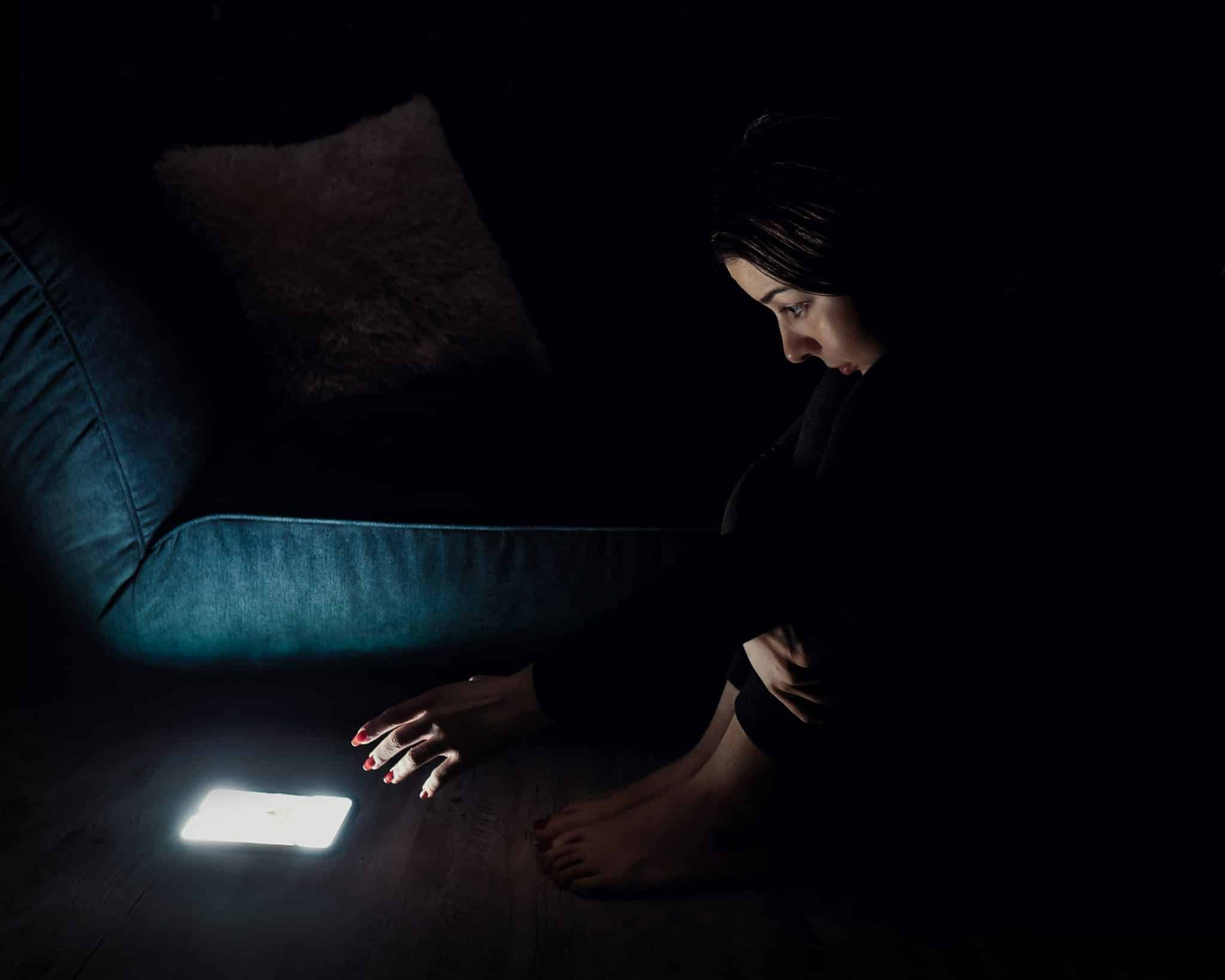Parenting in the Digital Age: Empowering Teens to Find Screen Time Balance

Parenting teens in the digital age means guiding, supporting, and helping them to take control of their own screen time.
For parents of young children, there is abundant information available on how to manage screen time for kids – choose content wisely, limit the amount of time in front of devices, teach online safety, etc. But for many parents, the real challenge emerges when the little ones become, well, not so little anymore.
For parents of teens, the task of parenting in the digital age shifts from one of controlling and restricting screen time to guiding, advising, supporting, and protecting. Yet teens for the most part would like to be left alone to figure things out, so what is a worried parent to do?
The trick here is to educate teens on how to be literate and thoughtful about the media they are interacting with. How much screen time is too much for your teen? It’s likely to change from day to day, depending on various factors. So, rather than setting an arbitrary number of hours a day based on an average, we can empower teens to take ownership and responsibility for their screen time. Encouraging teenagers to pay attention to the role that their devices play in their day-to-day lives, and be mindful of how that makes them feel, will give them the skills they need for the future.
Here are some ideas to help teens foster a healthy screen time relationship that will set them up for life:

Be a Role Model
This is a leftover from when your kids were little, but a must-do as they get older and develop critical skills. Teens in particular will often be far more responsive and reactive to a parents’ actions than their words.
A teenager can smell hypocrisy from a mile away, so if mom is going to tell the kids not to lay around mindlessly scrolling then she better not get caught doing it herself! The bottom line for parents of teens: practice what you preach, and keep your own screen time in check!
You can’t stop a habit if you don’t notice it first. The more your teen consciously acknowledges when they’re spending more time online than they intended, the better they will become at pulling themselves out of those rabbit holes.
Create Awareness about the Rabbit Hole phenomenon
One of the biggest issues that teens (and adults) grapple with when it comes to keeping a healthy screen time balance is the inevitable suck of the online world. They may have gone on YouTube with the clear intention to look for a video for science class, but 25 minutes later they’ve found themselves knee-deep in “funniest memes of 2021.”
What can we do about this? Teach kids to name it when they notice it is happening. Whether they quietly tell themselves, or announce it to whoever is in the room with them – this practice is key. You can’t stop a habit if you don’t notice it first. The more your teen can consciously acknowledge when they’re spending more time on screen than they intended, the better they will become at pulling themselves out of those rabbit holes.
Make Use of Technologies that Help Limit Distractions
Teens need to get work done – whether it’s homework, extracurriculars, or chores. But the lure of the online world can often make focusing on the task at hand feel impossible. We now know that multitasking is a myth – research has shown that we are actually up to 40% less productive when we multitask!
Thankfully there are apps like Freedom that can do the heavy lifting for us so we don’t need to rely on willpower. Freedom blocks distracting websites and apps at your teen’s command, which keeps their time on screen dedicated to the task at hand. The Freedom browser extensions: Pause, Limit, Insight, and Focus really put your teen – not mom and dad – in the driver’s seat.
Unlike monitoring apps that are pre-set by parents, Freedom puts the control in the child’s hands, teaching them how to prioritize important tasks and implement tools to help them achieve their goals.

Be Clear on Screen-Free Times and Spaces
As kids get older they will want more privacy and this may mean locking themselves away with a phone sometimes. Fair enough. Still, this doesn’t mean giving up on all rules about where and when screens are allowed. What we don’t want is for each child and parent in the household to end up isolated with a device when they should be interacting. So come together with your teens to discuss where and when to put the phones and computers down. Two great places to start are family meals and bedtime.
Though your teens may scowl through the entire family dinner, many studies have shown huge benefits in eating together, and ultimately, a family meal lets your teen step away from the stressors of their day to be present and connected IRL.
And bedtime? Well, bedtime is for sleep and sleep is for mind and body restoration – and is especially important during the teenage years. Explain this to your child, and insist on the phone being out of the bedroom and off until morning. It can be helpful to plan a bedtime routine together with your teen, perhaps replacing screen time with a relaxing bath, soothing playlist, or a good old-fashioned book!
As parents we can observe our children and notice what lights them up. In each of these genuine moments of happiness lies a clue to a potential offline hobby.
Help Teens Identify their Favorite Offline Alternatives
It’s very hard to put down that device if there is nothing else that excites you waiting on the other side. Screens are so stimulating, entertaining (arguably) addictive, and so easy to access, that other activities can feel like a bit of a slog in comparison.
But activities that take time, effort, and sustained focus often bring great joy and deep fulfillment. Some teens may already have a hobby, sport, or other activity that easily fills the void, but for many, finding an alternative to screen time can be a struggle.
As parents we can observe our children and notice what lights them up – it may be something small and unexpected like spending time with animals or rearranging their room. In each of these genuine moments of happiness lies a clue to a potential hobby. Talk to your kids and teach them to notice when they feel genuinely engaged and happy during an activity and encourage them to explore the ways in which these feelings may lead to fulfilling offline activities.
With our guidance and a little help from technology, our teens will slowly but surely learn how to become mindful and deliberate about how they spend their time online. By the time they become adults they’ll likely be better at the online/offline balance than we are!

Hear Julia Storm on the Freedom Matters Podcast:
Freedom can help your family use tech more mindfully.
Read our Freedom for Families Set-Up Guide to get started!

Julia Storm is a Los Angeles-based Digital Media Wellness Educator, writer, speaker, and founder of ReConnect, where she provides parents with a whole family approach to preparing kids for life in the Digital Age.


